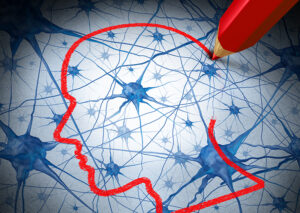December 8, 2021

Our experts in home care in Des Peres and surrounding areas explain how a new Alzheimer’s discovery could change how the disease is treated.
If there is one constant in the race to solve the mystery of Alzheimer’s, it is change. It appears as if any time scientists begin to get a grasp on one piece, new data shifts their hypotheses in an alternate direction. That’s certainly the situation with the incredible new Alzheimer’s discovery recently announced.
For the very first time ever, investigators from the University of Cambridge have been able to study human data as opposed to animal models. Their conclusions suggest an origin of the disease in multiple parts of the brain, instead of a single location that starts a chain reaction, as previously surmised from studies of the brains of mice.
Dr. Georg Meisl of Cambridge’s Yusuf Hamied Department of Chemistry explains, “The thinking had been that Alzheimer’s develops in a way that’s similar to many cancers: the aggregates form in one region and then spread through the brain. But instead, we found that when Alzheimer’s starts there are already aggregates in multiple regions of the brain, and so trying to stop the spread between regions will do little to slow the disease.”
Because of this, the disease’s development is predicated upon how swiftly cells are wiped out in these different regions. This new information will undoubtedly be very beneficial in the development of treatment options that focus on the processes that happen at the beginning of the disease. More good news: the replication of the tau and amyloid beta proteins responsible for Alzheimer’s takes place slowly, and our neurons are already evolving to stop the aggregation of these proteins. Hopefully soon, science and biology will work in tandem to assist the millions of people impacted by Alzheimer’s disease.
The next step will likely be for scientists to further explore the processes involved in the earliest stages of the disease, while extending research to other health conditions, like traumatic brain injury and progressive supranuclear palsy. The information obtained may even help provide clues into more effective treatments for other common neurodegenerative diseases, like Parkinson’s disease.
If someone you love is battling Alzheimer’s or another type of dementia, reach out to our dementia care team for helpful resources and assistance with innovative, skilled, hands-on caregiving support. Our creative, caring, and patient approach helps reduce the stress of challenging behaviors such as:
- Sundowning
- Wandering
- Aggression
- Agitation
- Frustration
- Confusion
- Disorientation
- And many more
Contact us online or call us at (314) 863-9912 or (636) 861-3336 and we can discuss solutions to help with the particular issues an older adult you love is facing. You are never alone with Continuum’s trained dementia care experts providing dedicated home care in Des Peres and surrounding communities!
